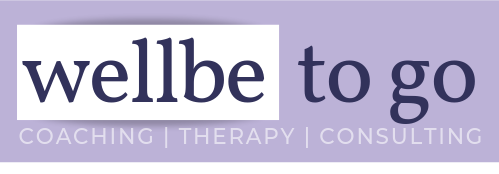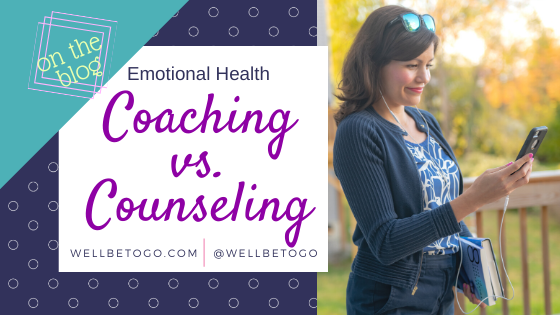Everyone online seems to have an opinion about coaching. But is there really a conflict between counseling & coaching?
As a licensed mental health counselor who naturally coaches, I’ve been studying both fields for over 9 years. Given my niche and unique experience of athletics training for most of my life, I am very transparent about the fact that I am a counselor who also uses coaching as a modality. Having read conflicting advice over the years, I’ve decided to clarify the position because I believe lifespan and human development is an important theory to incorporate into counseling.
Licensed mental health counselors are uniquely equipped to practice both therapy & coaching.
I believe all licensed mental health counselors are natural, over-qualified coaches. Foremost, we stay true to our profession by following our state legal and ethical guidelines; however, after that, it’s the relationship (person-centered theory) that ultimately matters. What counselors do particularly well, is establish an ethical relationship. We lay the ethical groundwork upfront (confidentiality & privacy) so that the client can then feel safe to explore what works for them.
Licensed mental health counselors have the tools and skills to decide when to use counseling & when to use coaching as a modality. The difference between counseling & coaching ultimately depends on the process of uncovering what the client needs & wants. For counselors, we have undergone thousands of hours of supervision to demonstrate our dedication to providing the highest quality of service. Through our training, we’ve gathered a varied toolbox of evidence-based modalities from which to collaborate with clients. From Erikson’s lifespan theory of human development – to motivational interviewing – to marriage and family counseling – to dating and healthy relationships … licensed therapists have hundreds of coaching theories/modalities from which to creatively map out lifespan goals and objectives.
One argument I’ve heard is that coaches produce “outcomes”. Again, however, as a counselor who coaches regularly, my clients and I work on outcomes every single session. I can explain this process simply. A client comes to counseling. I complete their intake & assessment. Then we collaborate together to formulate an action plan within the first three sessions. This action/treatment plan consists of “goals” and “objectives” with a typical timeline of 3 to 6 months. My client’s goals are clear and the results are measurable.
Not only do I help clients accomplish their tangible goals; but I also get measurable results. How?
One example is by using assessment tools. When appropriate, I conduct evidence-based measurable assessments with my clients to help us demonstrate improved scores with screening tools such as the BDI, PCL-5, GAD, Wellness Assessment, and dozens of other inventories that I’ve been trained to use. Assessments are crucial to bring awareness and understanding how symptoms of unnamed disorders can influence the quality of life; and how to measure progress leading to tangible outcomes and improved health, social, and occupational functioning.
For example, a client presents with social anxiety. She says, “I’m terrified of getting close to people because I feel so uncomfortable.” After a couple sessions, I start noticing that her symptoms sound like a mixture of anxiety, mood, trauma, work burnout, and self-esteem issues. The client and I complete assessments such as the Wellness Assessment; and we both discover that, yes, her symptoms indicate mild-moderate levels of all the above mentioned conditions. What a relief to my client! Now she can name the reason for her discomfort & we can formulate realistic goals. Once my client & I can measure the severity of symptoms, we can start to work to a place of awareness, clarity, and understanding. That is the counseling part.
However, the other crucial side to this is coaching.
For most people, coaching is more appropriate, ethical, and effective.
Many people do not have severe “mental health issues”. They have normal lifespan, relationship, identity, cultural, and career issues. Lifespan coaching (coupled with modalities such as MI, ACT, brief-CBT, Solutions-Focused, and Erikson’s Lifespan Development) help me teach the best evidence-based psychology tools to take my clients insight and awareness to the next level.
Counselors are uniquely trained in teaching: healthy relationship and dating skills, marriage and family counseling, healthy parenting, and career counseling skills. The outcome here is to boost clarity, confidence, and improved functioning – both personally and professionally. That is my role as a counselor who also coaches. That’s the authentic, honest, and genuine part of being a trained therapist who also wishes that all my clients experience success in taking their lives to the next level of wellness & thriving. Licensed clinicians have the tools and the foundations to provide excellent coaching and therapy.
So what should you choose? It is a matter of personal preference. Both coaching and counseling produce sustainable change, healing, and transformation. There are hundreds of theories, techniques, tools, and interventions in psychology from CBT to solutions-focused to narrative therapy to MBSR and beyond. Regardless of the modality, learning positive psychology skills and applying them to life will give you measurable life-changing relief & results quickly.
Choosing a professional licensed counselor who provides lifespan and development coaching is one great way to have the best of both worlds!
If you have any questions or comments, feel free to email and share your tips, words of wisdom, and stories with us at hello@wellbetogo.com.
Remember, you’ve got this & keep up the good work!
Sincerely,
The Wellbe To Go Team
© 2018 Wellbe To Go



Recent Comments